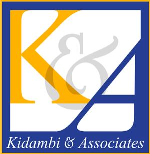As part of the Administration’s continuing commitment to attract and retain highly skilled immigrants, the Department of Homeland Security (DHS) today announced the publication of two proposed rules, including a rule to extend employment authorization to spouses of certain H-1B workers, and a proposal to enhance opportunities for certain groups of highly-skilled workers by removing obstacles to their remaining in the United States.
Together these actions will help attract new businesses and new investment to the U.S. and ensure that the U.S. has the most skilled workforce in the world.
“The proposed rules announced today provide important support to U.S. businesses while also supporting economic growth here in the U.S.,” said Deputy Secretary Alejandro Mayorkas. “These steps will help the U.S. maintain competitiveness with other countries in our efforts to attract the best and the brightest high-skilled workers from around the world to support companies here at home. Businesses continue to need these high-skilled workers, and these rules ensure we do not cede the upper hand to other countries competing for the same talent.”
“These two proposed rule changes are an integral part of the Administration’s efforts to strengthen entrepreneurship and innovation, and to help the United States attract and retain highly skilled immigrants,” said U.S. Secretary of Commerce Penny Pritzker. “The fact is, we must do more to retain and attract world-class talent to the United States and these regulations put us on a path to doing that. These actions promise to unleash more of the extraordinary contributions that immigrants have always made to America’s innovation economy.”
Both Notices of Proposed Rulemaking will soon publish in the Federal Register. DHS encourages the public to comment on the proposed rules through www.regulations.gov. All public comments will be considered before the final rules are published and go into effect.
Proposed Rule to Extend Employment Authorization to Spouses of Certain H-1B Workers
This proposed rule will amend existing regulations to allow H-4 dependent spouses of certain principal H-1B workers to request employment authorization.
U.S. businesses use the H-1B program to employ foreign workers in specialty occupations that require theoretical or technical expertise in specialized fields such as science, engineering or computer programming. Frequently, employers will petition for an immigrant visa for an H-1B worker, which enables individuals to become lawful permanent residents. Lawful permanent residents are generally eligible to become naturalized U.S. citizens after five years.
Under existing regulations, DHS does not extend employment authorization to dependents (also known as H-4 nonimmigrants) of H-1B nonimmigrant workers. The change proposed by DHS, would allow H-4 dependent spouses of certain H-1B nonimmigrant workers to request employment authorization, as long as the H-1B worker has already started the process of seeking lawful permanent residence through employment.
Eligible individuals would include H-4 dependent spouses of principal H-1B workers who:
- Are the beneficiaries of an approved Form I-140, Immigrant Petition for Alien Worker; or
- Have been granted an extension of their authorized period of stay in the United States under the American Competitiveness in the Twenty-first Century Act of 2000 (AC21) as amended by the 21st Century Department of Justice Appropriations Authorization Act. AC21 permits H-1B workers seeking lawful permanent residence to work and remain in the United States beyond the six-year limit.
Proposal to Enhance Opportunities for Highly-Skilled Workers
This proposed regulatory change would enhance opportunities for certain groups of highly-skilled and transitional workers by removing obstacles to their remaining in the United States.
Specifically, the change to the regulation would:
- Update the regulations to include nonimmigrant high-skilled specialty occupation professionals from Chile and Singapore (H-1B1) and from Australia (E-3) in the list of classes of aliens authorized for employment incident to status with a specific employer,
- Clarify that H-1B1 and principal E-3 nonimmigrants are allowed to work without having to separately apply to DHS for employment authorization.
- Allow E-3, H-1B1 and CW-1 nonimmigrant workers up to 240 days of continued work authorization beyond the expiration date noted on their Form I-94, Arrival/Departure Record, while the extension request is pending.
It would affect workers in specialty occupation nonimmigrant classifications for professionals from Chile and Singapore (H-1B1) and Australia (E-3), as well as Commonwealth of the Northern Mariana Island (CNMI)-Only Transitional Workers (CW-1).
Under current regulations, employers of workers in E-3, H-1B1, or CW-1 status must generally file a petition requesting the extension of the employee’s status well before the initial authorized duration of status expires.
Finally, this proposal would also expand the current list of evidentiary criteria for employment-based first preference (EB-1) outstanding professors and researchers to allow the submission of evidence comparable to the other forms of evidence already listed in the regulations. This proposal would harmonize the regulations for EB-1 outstanding professors and researchers with other employment-based immigrant categories that already allow for submission of comparable evidence.
For more information, please visit www.dhs.gov
